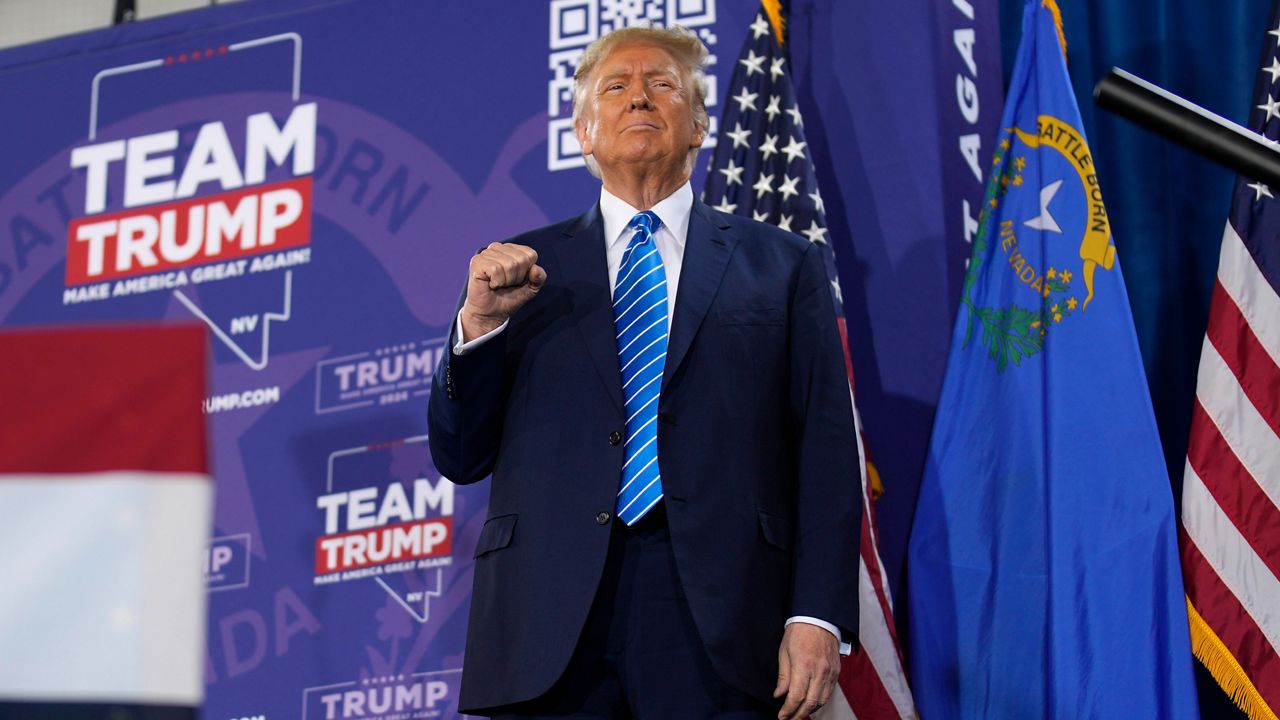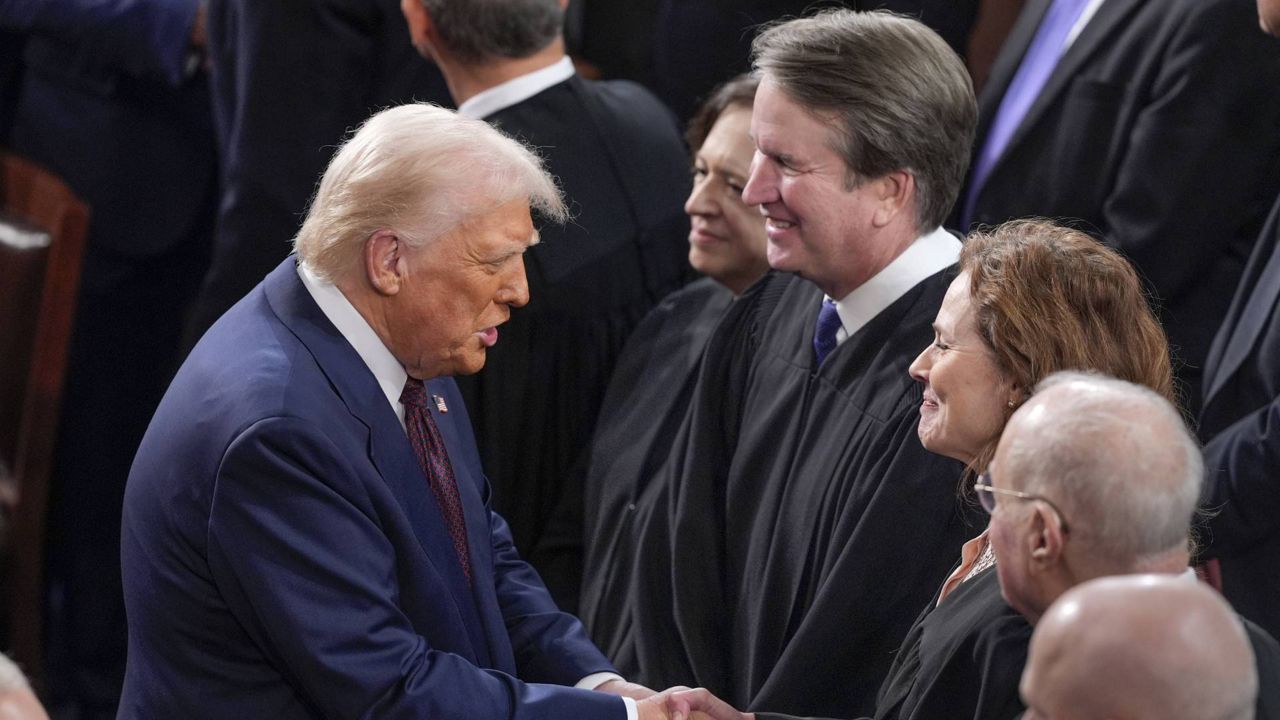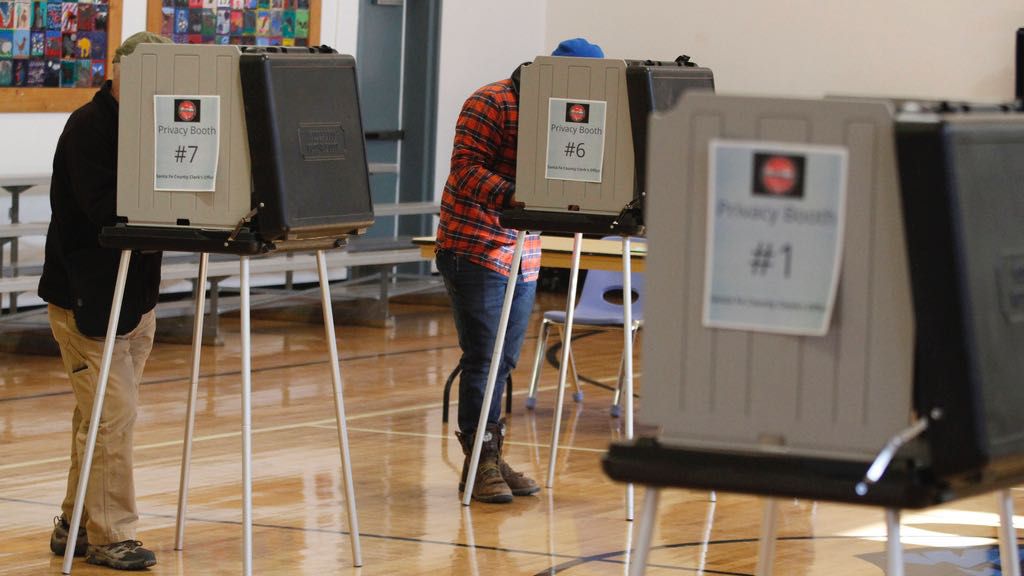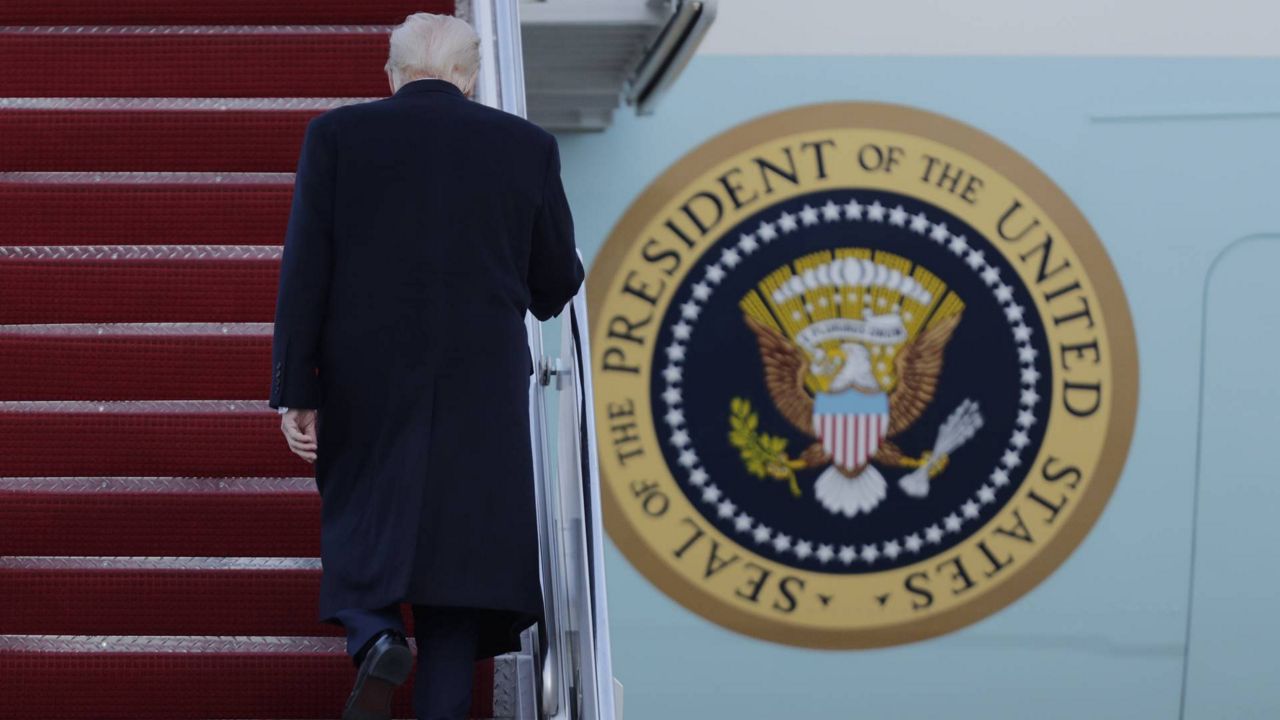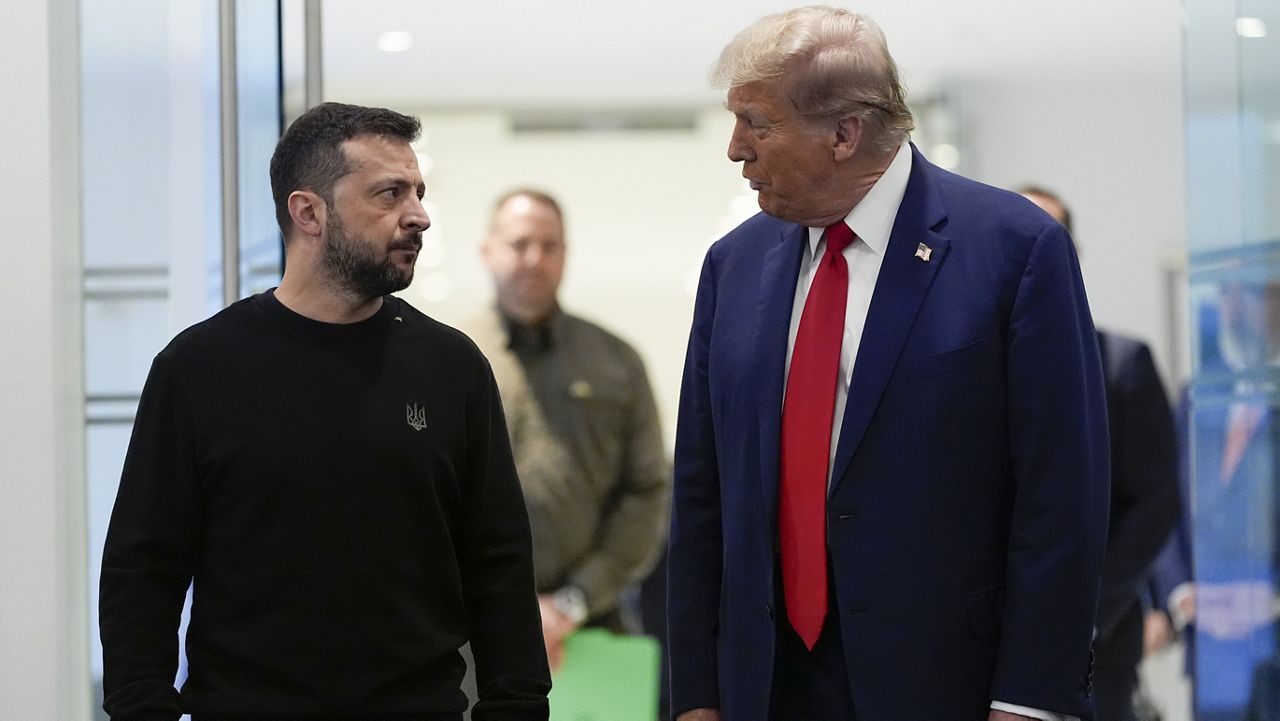Former President Donald Trump and former U.N. Ambassador Nikki Haley, the last remaining major 2024 GOP presidential contenders, will both be competing for voters in Nevada this week -- but they will not be on the same ballot.
They won't even be competing on the same day.
What You Need To Know
- Former President Donald Trump and former U.N. Ambassador Nikki Haley will both be competing in Nevada this week, but the last remaining major 2024 GOP presidential contenders will not be on the same ballot
- Instead, Haley will be on the Tuesday, Feb. 6 primary ballot and Trump will be up for consideration by Republican caucusgoers two days later
- The two contests are a product of a new state law requiring primary presidential elections and the insistence of the state GOP to continue holding caucuses as they have since the 1980s
- At stake in the party-run caucuses — where Trump is likely to win overwhelmingly — are 26 delegates to the Republican National Convention. The primary will not result in RNC delegates for the victor
Instead, Haley will be on the Tuesday, Feb. 6 primary ballot and Trump, coming off of victories in Iowa and New Hampshire, will be up for consideration by Republican caucusgoers two days later. The two contests are a product of a new state law requiring primary presidential elections and the insistence of the state GOP to continue holding caucuses as they have since the 1980s.
At stake in the party-run caucuses — where Trump will only face the largely unknown Texas businessman and pastor Ryan Binkley — are 26 delegates to the Republican National Convention.
For Haley, a victory in the state-run primary over four other largely unknown, quixotic candidates would simply be a matter of bragging rights as she works to build momentum ahead of South Carolina’s primary later in February. South Carolina Sen. Tim Scott and former Vice President Mike Pence, who have since dropped out of the race, will remain on the ballot.
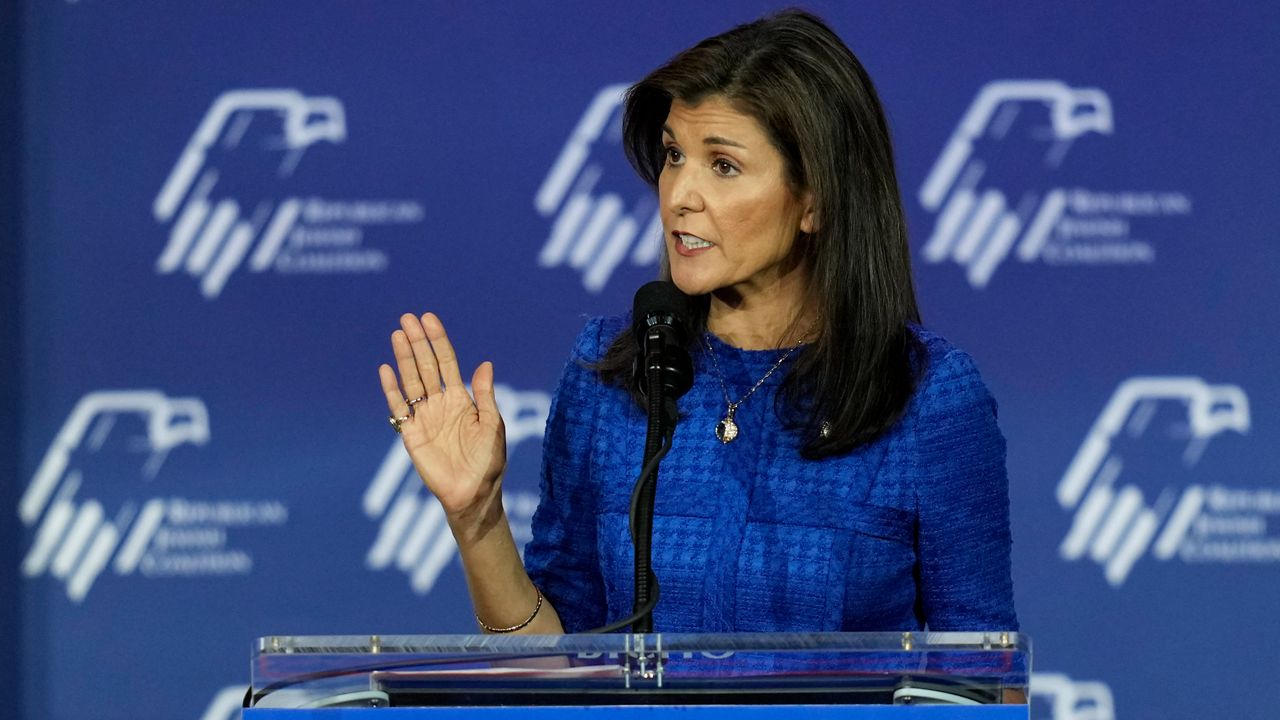
“Your primary vote doesn't mean anything. It's your caucus vote,” Trump told supporters at a Las Vegas rally over the weekend. “So in your state, you have both the primary and you have a caucus. Don't worry about the primary, just do the caucus thing.”
Democrats will also hold a primary on Feb. 6, though President Joe Biden is likely to win by a large margin. One of his more notable longshot challengers, Minnesota Rep. Dean Phillips, opted to skip the state.
Here’s what you need to know about the Nevada primaries, caucuses and what it means for the 2024 presidential race:
When is the Nevada primary? When are the Nevada caucuses?
The Nevada primary for both parties is on Tuesday, Feb. 6. Early voting began on Jan. 27 and ends Feb. 2.
Two days later, on Thursday, Feb. 8., the Nevada GOP will run caucuses from 5 p.m. to 7:30 p.m. to decide who wins the state’s 26 delegates. Only active duty military members, their dependents and Nevadans who require Americans with Disabilities Act accommodations can vote absentee in the caucuses, according to the state party.
Registered Republicans can vote in both the primary and the caucuses, local election officials told the Reno Gazette Journal. Independents and other voters not registered with either major party will not be eligible to vote in the Republican and Democratic contests.
Why are there two GOP races in Nevada?
In 2020, the results of the competitive Democratic caucuses in Nevada were delayed for days, drawing ire from candidates and calls for the state to abandon the system, which is generally seen as more complicated and labor-intensive for voters and vote counters than simply casting a primary ballot.
In response to complaints about the 2020 caucuses, former Senate Majority Harry Reid — a giant of Nevada politics and a longtime advocate of the caucus system — and others pushed for the state to embrace a primary. In June 2021, then-Democratic Gov. Steve Sisolak signed a law that required the state to host primaries.
Last year, the Nevada GOP sued to stop the primary from going forward, but dropped that fight earlier this month. A local judge had ruled in July 2023 that both contests would be held, but that the Nevada Republican Party could decide on their own how to allocate its 26 RNC delegates, which it has tied to the results of the caucuses.
Few are satisfied with the circumstances, with Republican Gov. Joe Lombardo expressing concern last year that the dueling elections would “disenfranchise a number of voters,” calling the situation “unacceptable.” He revealed earlier this month he will caucus for Trump and write-in “none of the above” in the primary.
What’s the difference between the primary and the caucuses?
Unlike a primary election, Nevada’s GOP caucuses are party-held meetings in precincts across the state where representatives of the candidates are allowed to make their case before a secret ballot is cast. Caucuses tend to have lower turnout than primaries because of the time-consuming nature of the process.
And Nevada’s 26 Republican presidential delegates will only be awarded to the caucus winner, all but assured to be Trump. In an official party document published earlier this month, the Nevada GOP wrote the primary victor would win “nothing but brief, meaningless bragging rights.”
Who is competing in each contest?
Trump and Binkely are the only candidates competing in the caucuses. Haley is the only remaining legitimate challenge to Trump’s hold on the party competing in the primary, though Scott and Pence remain on the ballot despite dropping out.
Originally, former New Jersey Gov. Chris Christie, North Dakota Gov. Doug Burgum, Florida Gov. Ron DeSantis and Ohio entrepreneur Vivek Ramaswamy were supposed to be on the caucus ballot, but they have dropped out and the state party removed them from contention.
Haley has not publicly explained why she chose the primary, but other candidates and critics have argued the Nevada GOP, lead by Trump allies, is tipping the scales in Trump’s favor with restrictive voter ID laws and a ban on super PAC spending.
A caucus may also be more beneficial to his fervent supporters who may be more willing and able to set aside two and a half-hours on a weekday night.
Trump won the 2016 Nevada Republican caucuses by 22 percentage points.
Nevada GOP chairman Michael McDonald and two other top party officials were indicted on felony charges in December for participating in a fake elector scheme to place the state in Trump’s column in the 2020 presidential election despite him losing.
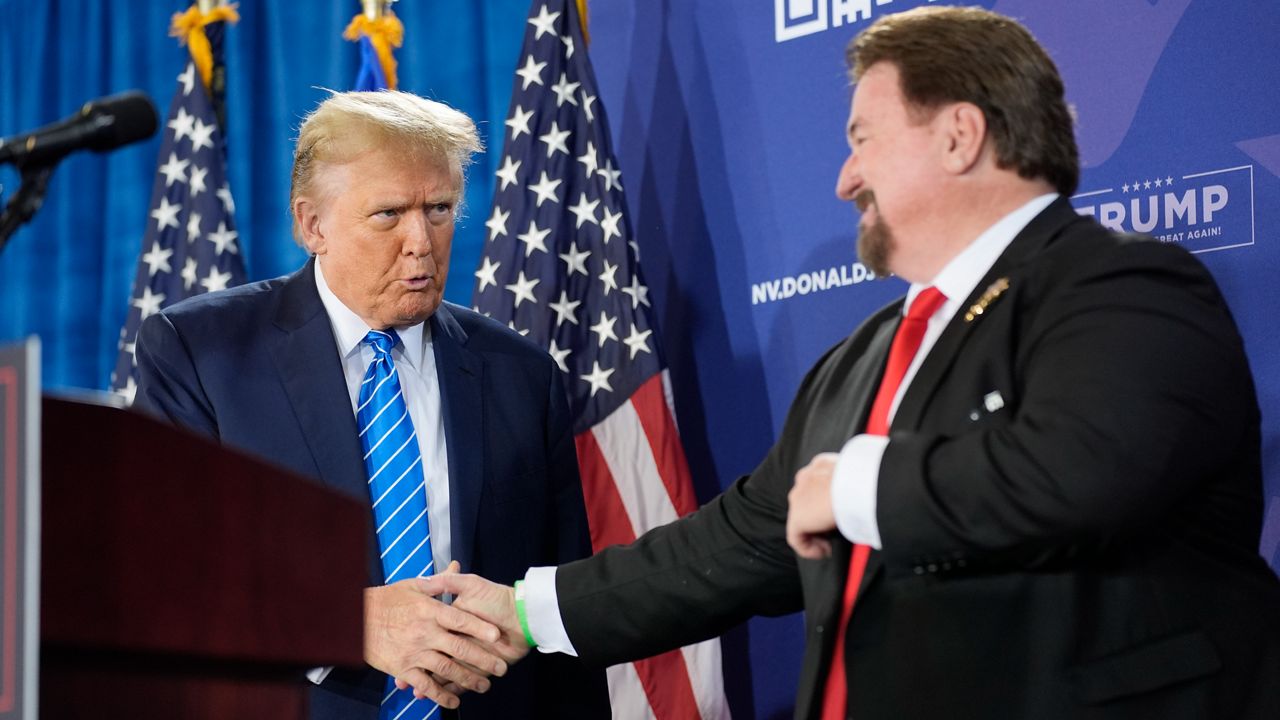
What comes next?
The U.S. Virgin Islands will host their caucuses on Feb. 8, the same day as the Nevada caucuses. Four Republican National Convention delegates will be at stake.
After that, South Carolina’s Republican primary is scheduled for Feb. 24 and will include both Trump and Haley, a former two-term governor of the state. Trump is leading her in polls of South Carolina by over 30 percentage points on average, according to the polling aggregator FiveThirtyEight.
What about the Democrats?
President Joe Biden’s challengers have shown little sign of disrupting the incumbent’s path to his second presidential nomination. He won New Hampshire’s primary, an unofficial contest in the eyes of the Democratic National Committee due to a dispute over scheduling, by more than 40 percentage points, despite being a write-in candidate only.
Phillips missed the deadline to get on the Nevada primary ballot and spiritual leader Marianne Williamson is polling in the single digits nationally. An Emerson College poll in early January found she had about 2.5% support among the Democratic electorate in Nevada.
The Nevada Democratic primary takes place on Feb. 6, the same day as the Republican one. South Carolina’s Democratic primary on Feb. 3 will be the first contest to feature Biden’s name on the ballot.




